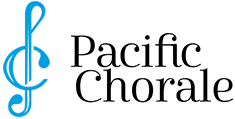- July 31, 2025
Choral Festival 2025 Weaves Visionary Voices of the Past and Present
This year’s Choral Festival on August 17, 2025 will feature landmark compositions in the choral repertory and highlight diverse voices, from the page to the stage. With works by Leonard Bernstein, Adolphus Hailstork, and Undine Smith Moore, this concert’s programming presents an opportunity for the Festival Chorus to engage with and share powerful works that invite us all to think deeply. Each piece of music on the evening’s program touches upon themes of a shared hope for a more peaceful world.
Musical contemplations, challenges, and commentaries on the status quo have marked each pivotal moment on history's path of progress. Hailstork, Moore and Bernstein’s works represent such contemporary additions to this conversation, and while the world has changed a good deal in the time since each composition was premiered, their messages remain equally pertinent and powerful today.
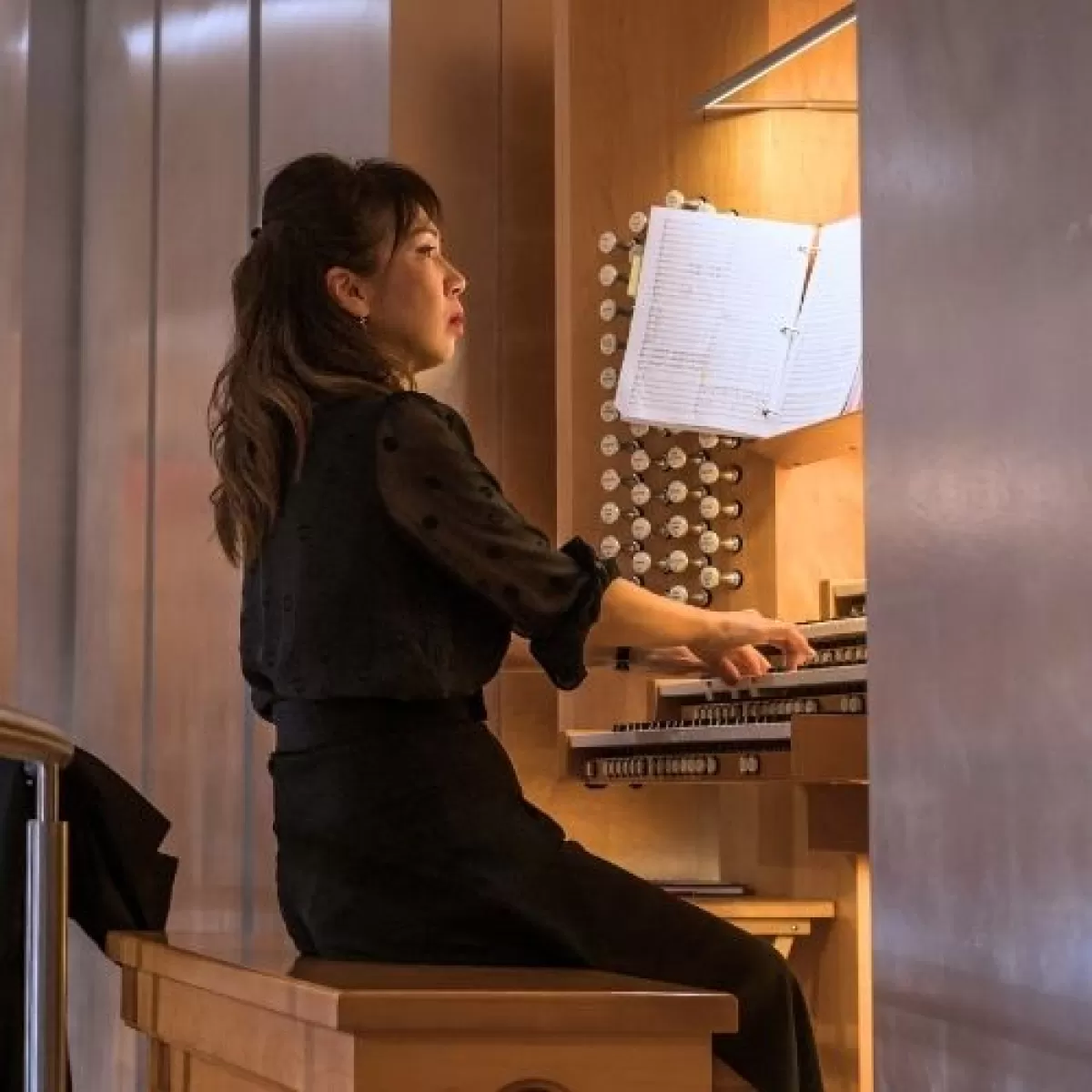
American Folk Songs Reimagined
Opening the evening’s performance, accomplished Festival Chorus organist Jung-A Lee will present an original Medley on American Folk Songs, music inseparably woven into the codex of choral music and the tapestry of American history. With roots in oral tradition dating back centuries, these melodies and their meanings have been carried from generation to generation with an ever-developing patina as they have been interpreted, internalized, and adapted by many voices over decades. These familiar folk tunes, newly arranged by Lee, sets the tone for the rest of the program.
Psalms of Reflection and Renewal
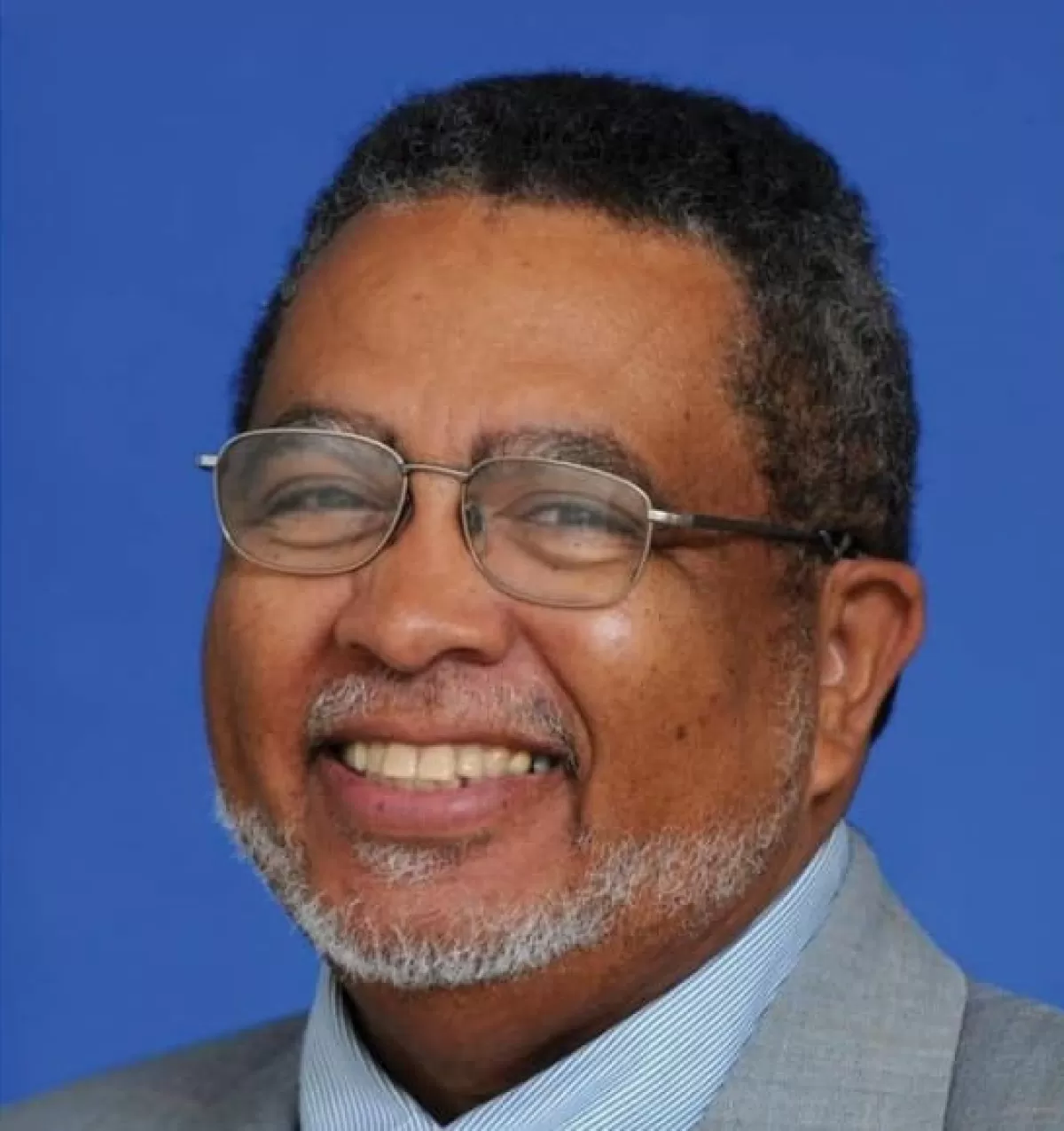
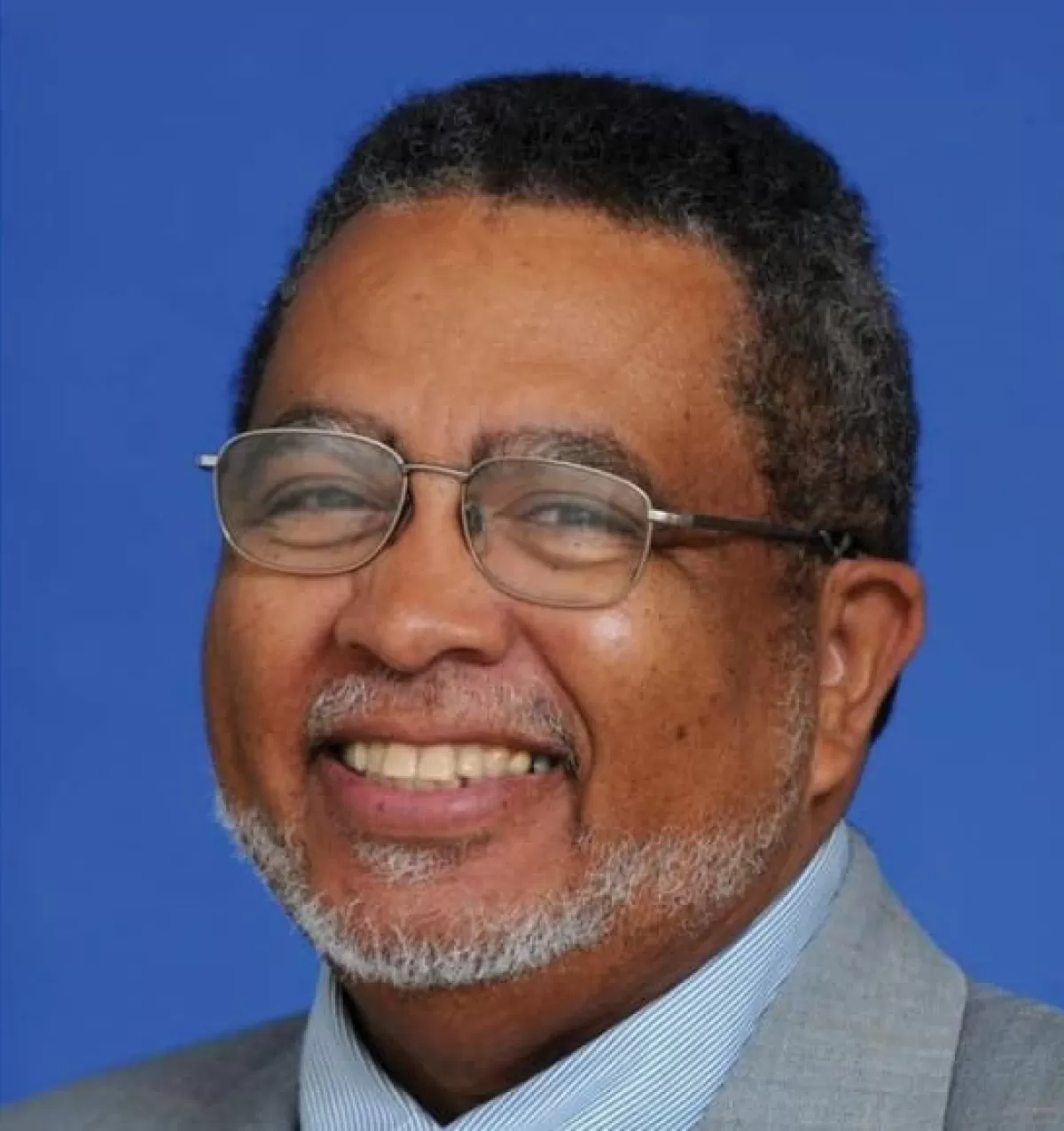 Adolphus Hailstork’s I Will Lift Up Mine Eyes follows this prelude. This cantata for tenor soloist, chorus, and orchestra is dedicated to Undine Smith Moore—often recalled as the “Dean of Black Women Composers” for her pioneering work—upon her passing in 1989. Hailstork’s setting of three well-known Psalms (121 “I will lift up mine eyes to the hills, from whence cometh my help”, 13 “How long, O Lord, will Thou forget me?”, and 23 “The Lord is my shepherd; I shall not want”), reflects the meaning and importance of these texts to the composer, as well as echo the similar significance of spirituals in Moore’s work.
Adolphus Hailstork’s I Will Lift Up Mine Eyes follows this prelude. This cantata for tenor soloist, chorus, and orchestra is dedicated to Undine Smith Moore—often recalled as the “Dean of Black Women Composers” for her pioneering work—upon her passing in 1989. Hailstork’s setting of three well-known Psalms (121 “I will lift up mine eyes to the hills, from whence cometh my help”, 13 “How long, O Lord, will Thou forget me?”, and 23 “The Lord is my shepherd; I shall not want”), reflects the meaning and importance of these texts to the composer, as well as echo the similar significance of spirituals in Moore’s work.Throughout the three movements of I Will Lift Up Mine Eyes, Hailstork musically cycles through the emotions of grief, acceptance, and hope. Notedly, Psalm 23 which Hailstork sets in his third movement, is also the scriptural source from which the text for Moore’s We Will Walk Through the Valley is drawn—Psalm 23:4 “Yea, though I walk through the valley of the shadow of death, I will fear no evil: for thou art with me; thy rod and thy staff they comfort me”.
On a similar psalm-set composition, Hailstork has said “I always go to the Psalms. What I do is select the words that at the time create a visceral response in me. I feel a connection with them. Usually I will go for imagery.”
African American Spirituals in a Modern Voice
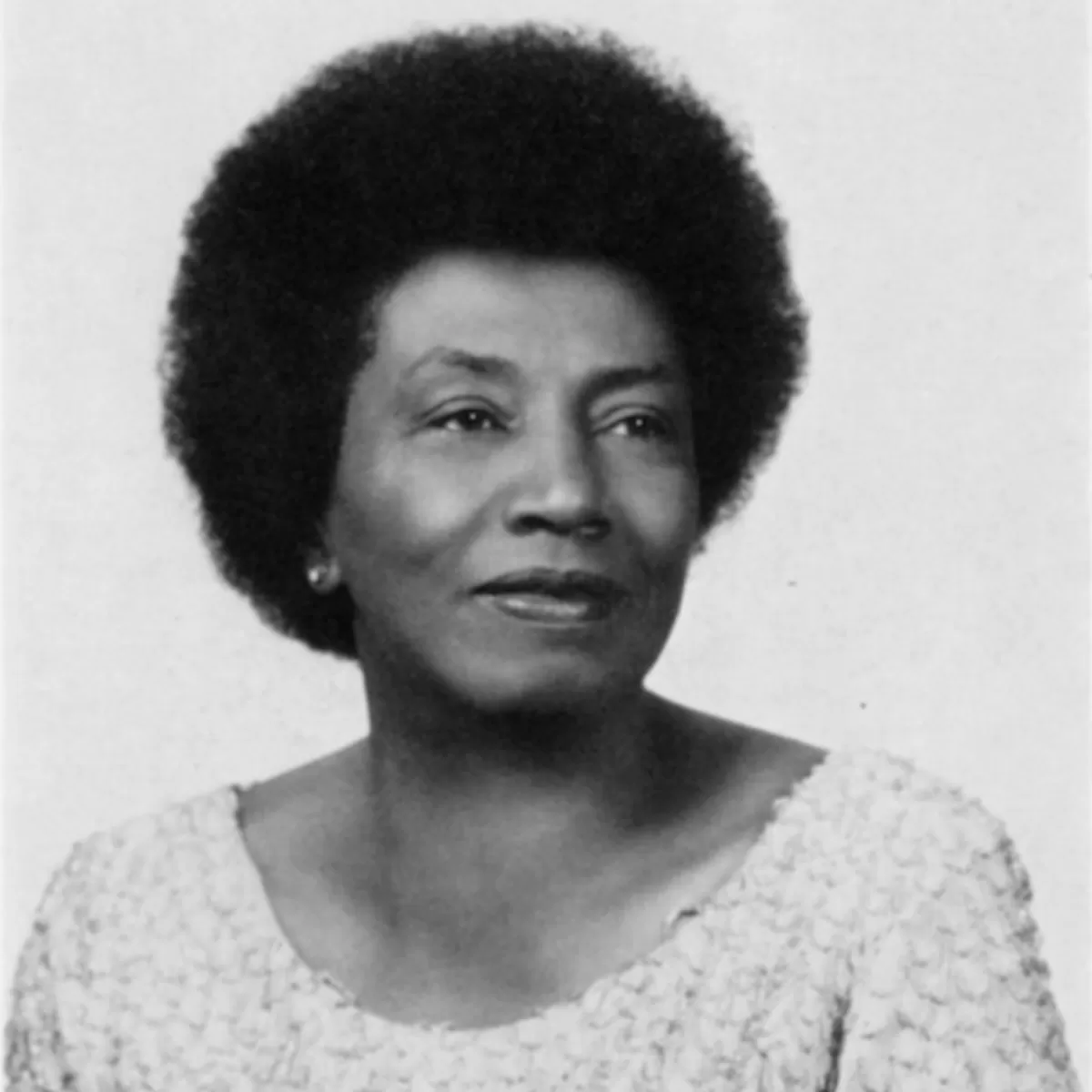 Undine Smith Moore’s beautiful arrangement of We Shall Walk Through the Valley follows this dedication. A noted contemporary composer and teacher, who valued each of these aspects of her career equally, Moore was greatly influenced by African American spirituals and other forms of Black traditional music. Her re-setting of this well-known traditional African American spiritual, with early printings dating back to the late 19th century, is one such example of music’s power to bridge the years between distant and recent, with an equally powerful effect. Moore’s compositional oeuvre brings the spotlight back again to these traditional works, a reminder of the profound effect a single song can continue to carry in a modern world.
Undine Smith Moore’s beautiful arrangement of We Shall Walk Through the Valley follows this dedication. A noted contemporary composer and teacher, who valued each of these aspects of her career equally, Moore was greatly influenced by African American spirituals and other forms of Black traditional music. Her re-setting of this well-known traditional African American spiritual, with early printings dating back to the late 19th century, is one such example of music’s power to bridge the years between distant and recent, with an equally powerful effect. Moore’s compositional oeuvre brings the spotlight back again to these traditional works, a reminder of the profound effect a single song can continue to carry in a modern world. In Moore’s words, “from our earliest remembrances we are influenced by the things we hear when we do not even know what we are hearing, by the things we see when we don’t know what we are seeing.”
Bernstein’s MASS and the Search for Peace
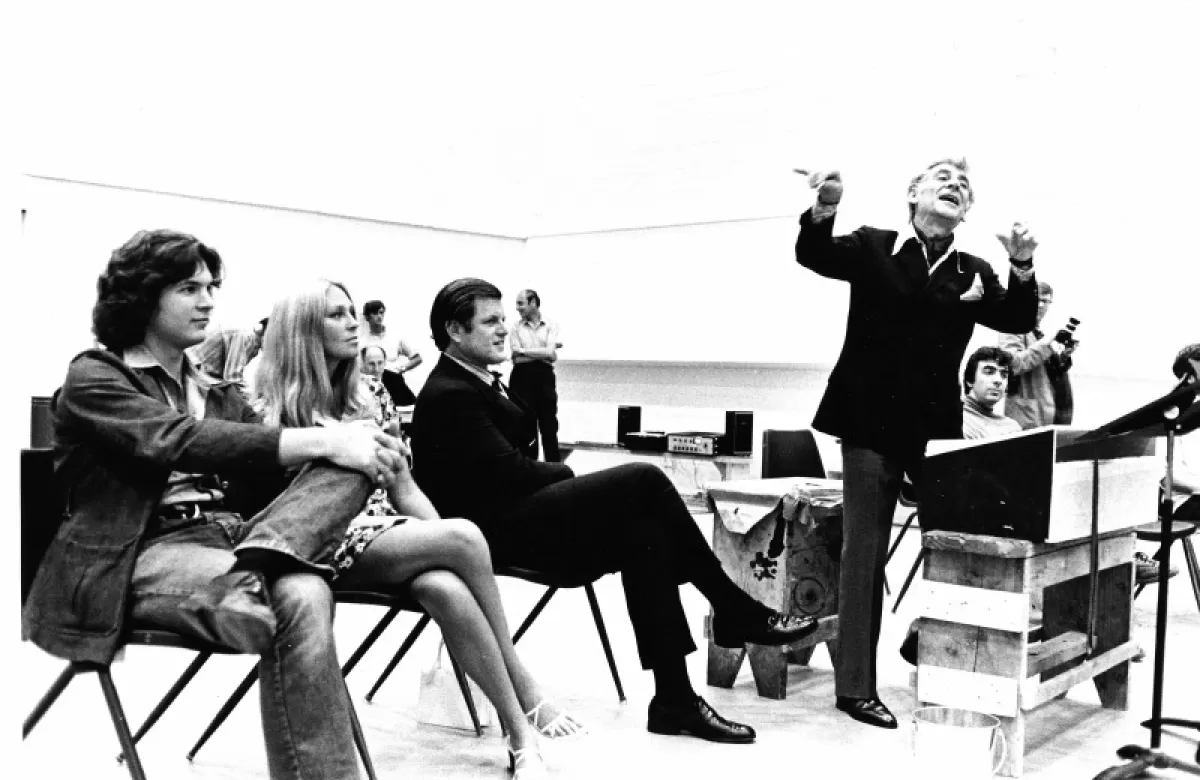 Concluding our concert is Leonard Bernstein’s searching, thought-provoking MASS: A Theater Piece for Singers, Players, and Dancers. Composed at the request of Jacqueline Kennedy Onassis to open the John F. Kennedy Center for the Performing Arts in 1971, MASS poses deeply personal questions of faith and self-examination. Bernstein sets the traditional text of the Catholic liturgy of the Mass in a fusion of genres, juxtaposing the historical significances and traditional structure of a mass against rock, gospel, classical, jazz, and Broadway styles. Framed by movements of his own written in collaboration with Stephen Schwartz, Broadway composer and lyricist, MASS expresses the difficulty of maintaining faith at a time of social dissent. Initially met with both intense acclaim and criticism, the work has since been called “the ultimate People’s Mass,” and its message—the fervent desire for peace in a conflicted world—holds equally strong more than fifty years later.
Concluding our concert is Leonard Bernstein’s searching, thought-provoking MASS: A Theater Piece for Singers, Players, and Dancers. Composed at the request of Jacqueline Kennedy Onassis to open the John F. Kennedy Center for the Performing Arts in 1971, MASS poses deeply personal questions of faith and self-examination. Bernstein sets the traditional text of the Catholic liturgy of the Mass in a fusion of genres, juxtaposing the historical significances and traditional structure of a mass against rock, gospel, classical, jazz, and Broadway styles. Framed by movements of his own written in collaboration with Stephen Schwartz, Broadway composer and lyricist, MASS expresses the difficulty of maintaining faith at a time of social dissent. Initially met with both intense acclaim and criticism, the work has since been called “the ultimate People’s Mass,” and its message—the fervent desire for peace in a conflicted world—holds equally strong more than fifty years later. “It is a piece I have been writing all my life,” Bernstein wrote in the original liner notes, “and everything I have written before has been in some way a rehearsal for it.”
With a program weaving together unifying themes of hope and peace in a contemporary world, we invite you to enjoy a free evening of music and togetherness at Segerstrom Center for the Arts’ stunning Renée and Henry Segerstrom Concert Hall.
Tickets are available online; reserve yours today to experience this coming-together event–a nod to the many joyful moments of music to come in Pacific Chorale’s 2025-26 Season! Learn more about Pacific Chorale’s Choral Festival on August 17, 2025.
